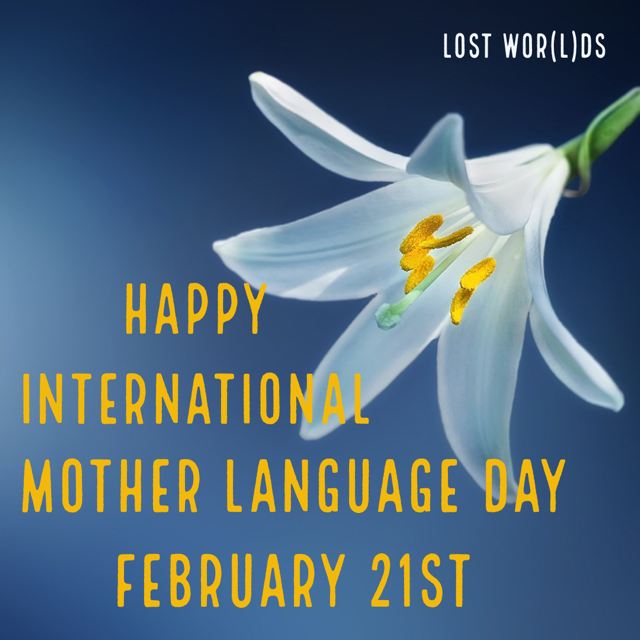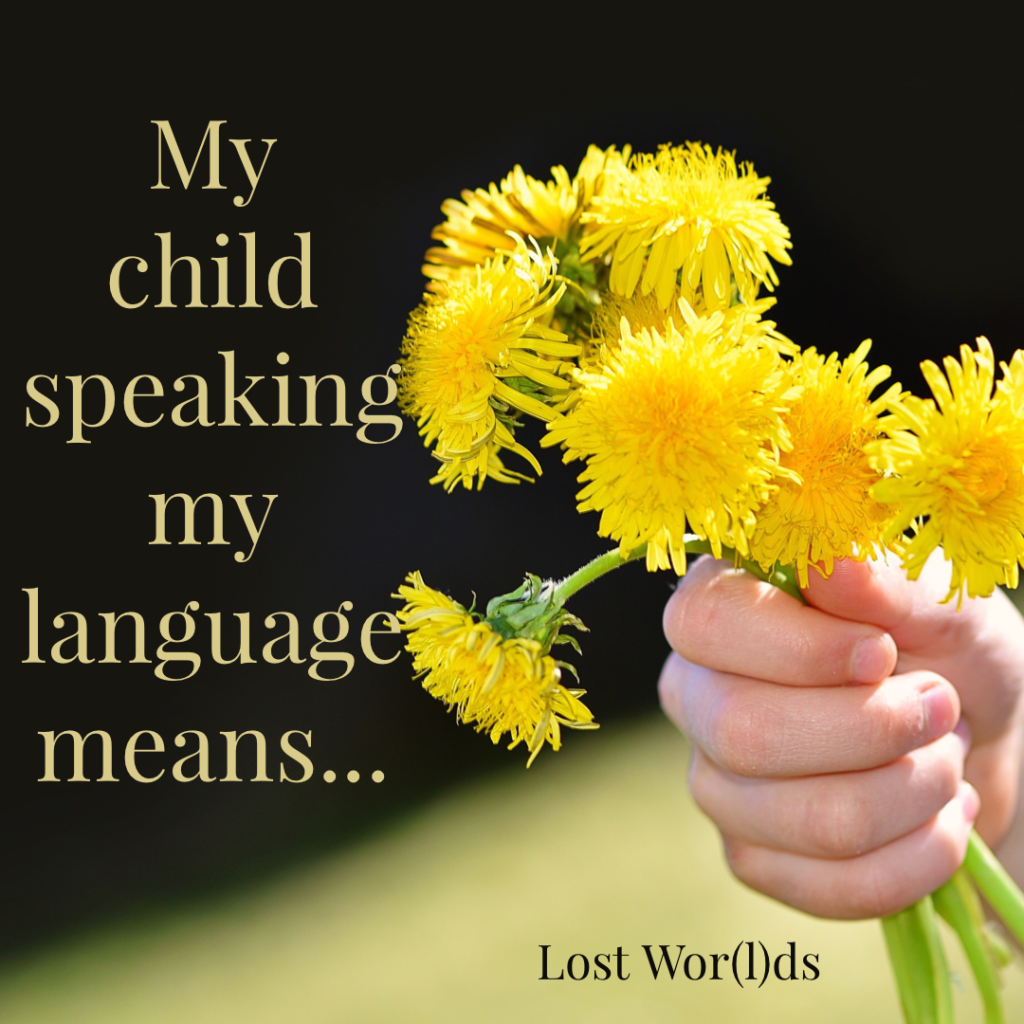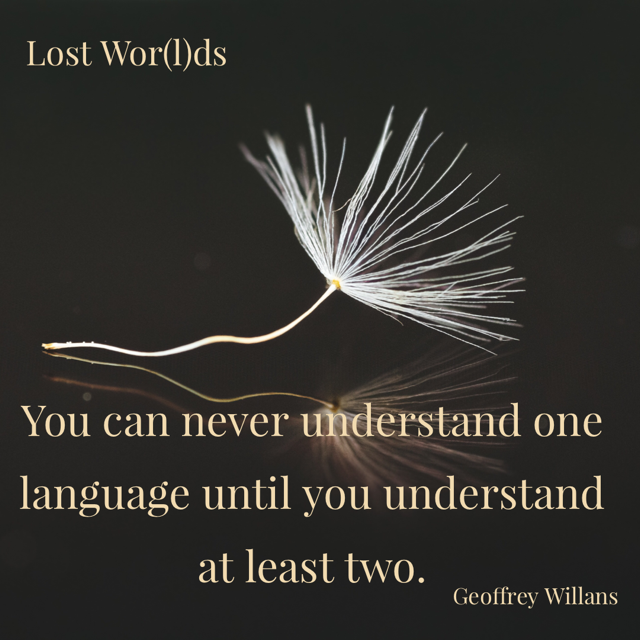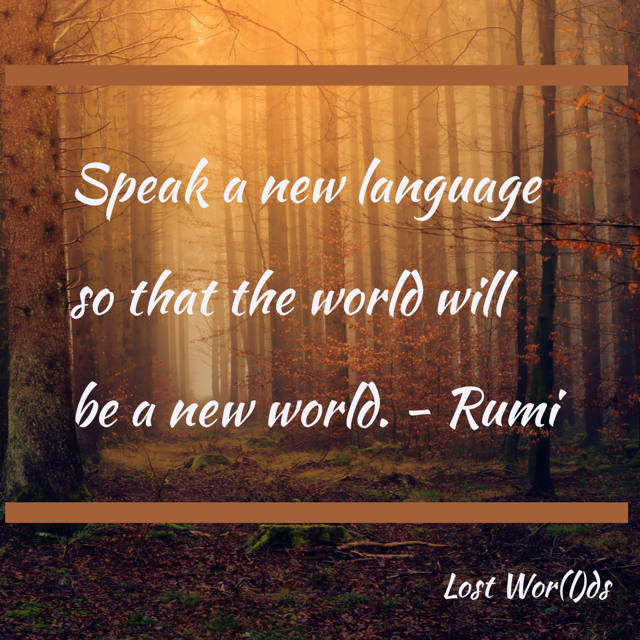
Last week, I was looking for inspirational quotes related to languages, and there are plenty. From Ludwig Wittgenstein’s “The limits of my language are the limits of my world”, to Nelson Mandela’s “If you talk to a man in a language he understands, that goes to his head. If you talk to him in his language, that goes to his heart”, there are plenty of quotes that support multilingualism and language learning. But the reality, the essence of being multilingual, is difficult to fit into a pithy quote. So, on this International Mother Language Day, we asked on social media why maintaining home, family, heritage languages is so important.

Susan (@arbizonne) stated that passing the language on was important “so they [kids] can talk to both sets of grandparents!” This was a primary reason for me, too, when my son was born – with one set of grandparents 30 minutes down the road, and the other in a different country, it felt like the odds were already stacked, and I wanted my son and my mother, two people whom I dearly love, to be able to have a connection that did not require me to mediate it.
Rustam School (@SchoolRustam), a supplementary school for Persian language and culture, got every ounce out of Twitter character limitations, tweeting:
To pass on your language means.. Connection, identity, pride, understanding, community, togetherness, love, soul, opportunity, choice, double not half, options, grounding, giving, respect, recognition, family…a gift
There is so much to unpack in this tweet. In one of my research projects, I explored the emotional and pragmatic attitudes towards heritage language maintenance, and the Tweet from Rustam School encompasses them all. As well as facilitating emotional connections to a community and a culture, facilitating the heritage language presents “opportunity, choice”, and “options”, not just at pragmatic level, in form of career choices, but also in terms of identity. The respect and recognition all multilingual parents hope their child will receive for their various languages and cultural connections, without hierarchical thinking, is one of the underlying principles of the Lost Wor(l)ds project. We understand now that multilingualism is not separate monolingual “language pots”. As Aristotle said, the whole is greater than the sum of its parts. Facilitating multilingualism *only* has advantages – at cognitive, emotional, and pragmatic level.

Children weighed in on the action, too, commenting being multilingual
gives you another way of communicating, another skill, ability to have deeper conversation, help others in your mainstream by speaking with them or translating, communicate with new people. Have a different community to go to, twice the friends. Fun.
Another commented that it opened up possibilities for the future in terms of studying abroad, and being more likely to have a shared language when travelling.
Even though I live a multilingual life every day, I was struck by children’s views on how being multilingual was not just important right here and now, opening up new friendships, and not even just for the future, opening up new possibilities for studies and work, but that children also viewed it as an important social role within the community.

Finally, Alina (@ionela_badescu) summarised her views by saying “a different language brings a different vision of life”, a quote typically attributed to Federico Fellini.
The theme for International Mother Language Day 2021 is “Fostering multilingualism for inclusion in education and society” – the absolute core of our work at Lost Wor(l)ds. During the past year, I have heard various views from multilingual families – in some, lockdown and increased time at home has meant that heritage languages saw more use, in others, additional responsibilities for education have meant that there has been more English in the home, with heritage languages taking a back seat. What the last year has shown us is how amazingly dedicated, resourceful, and hardworking both teachers and parents are when it comes to keeping education going, and there have been fantastic examples of parent-school collaborations. Lost Wor(l)ds is trying to add a tiny bit to these collaborations, providing activities that facilitate multilingualism, and are suitable both in classroom and home learning settings – so that the benefits our multilingual children have can continue to thrive.
Happy International Mother Language Day!